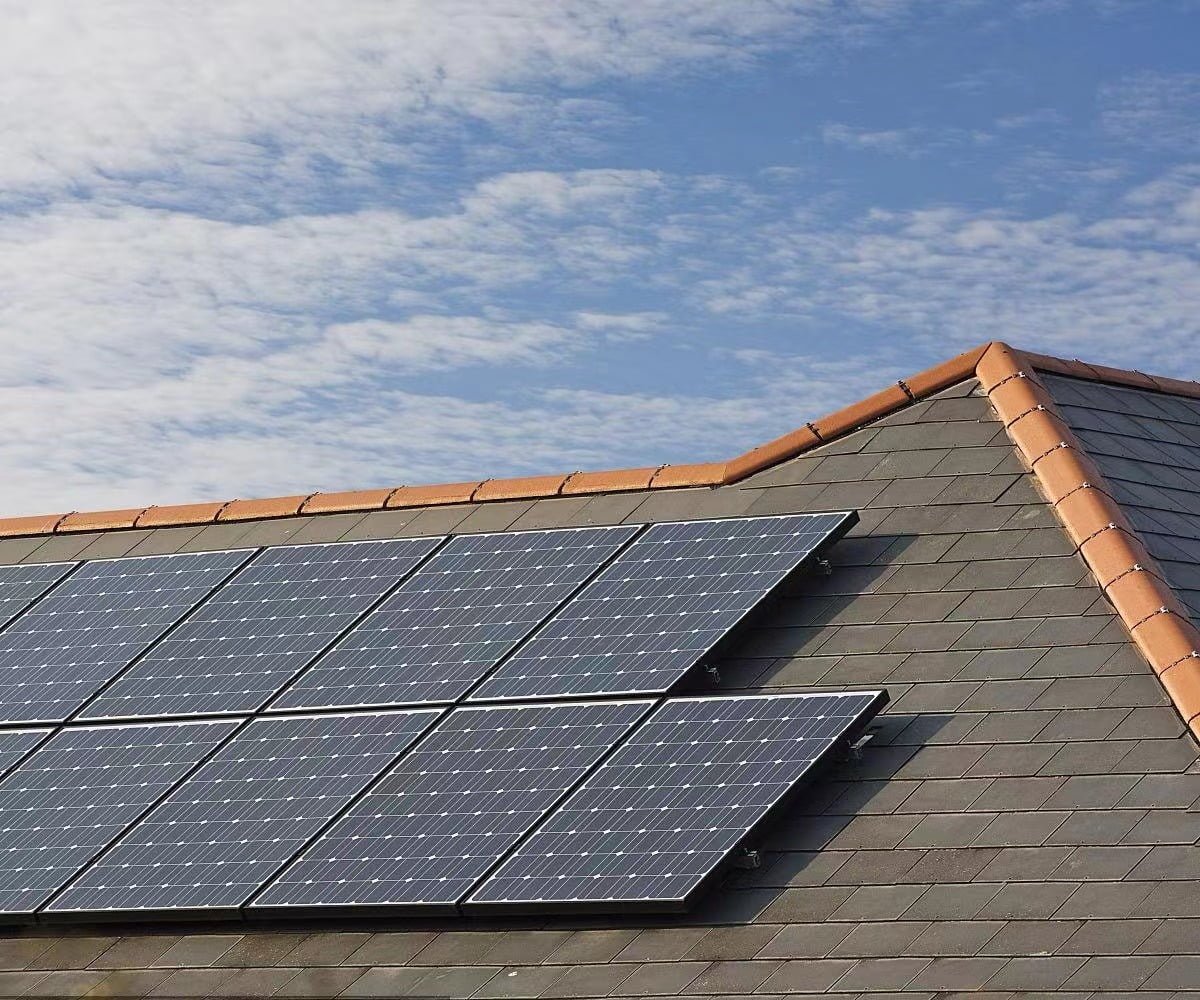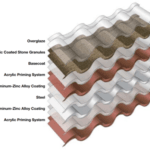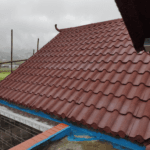The Basic Information of Solar Panels
Solar panel, also known as a photovoltaic panel or solar cell panel, is a device that converts sunlight into electricity. It is the core component of a solar power system and is widely used in a variety of applications such as rooftops, solar power plants, boats, and vehicles. A solar panel usually consists of multiple solar cells that are welded or bonded together to form a tightly spaced array of cells. The cell array is encapsulated in a transparent protective layer to protect the cells from external environmental damage and to provide structural support. The protective layer is usually a glass or plastic material with high light transmission.
How Is It Works
When sunlight hits the solar panel, photons are absorbed and excite electrons in the cell. The excited electrons generate an electric current inside the cell, which flows out through wires attached to the solar panel. This DC current can be used to power devices, recharge batteries, or be converted to AC power through an inverter for home and commercial use.
Types Of Solar Panels
The most common type of solar cell is the silicon-based solar cell, which is categorized as monocrystalline, polycrystalline and amorphous silicon. Monocrystalline solar cells offer higher efficiency and higher cost, polycrystalline solar cells are slightly less efficient but lower cost, and amorphous solar cells are suitable for flexible and lightweight applications.
Installation And Configuration
Solar panels are usually mounted on a roof, building or ground mount. For optimal solar reception, solar panels should be oriented toward the sun and unobstructed by shaded objects. The mounting angle is usually adjusted according to the latitude and season of the location.
Power And Efficiency
The power of a solar panel indicates the amount of electricity that can be output per unit of time, usually measured in watts (W). The higher the power, the more electricity the solar panel produces. The efficiency of a solar panel indicates the ability to convert sunlight into electricity. It is the ratio between the solar panel’s output of electricity and the amount of solar energy it receives. The higher the efficiency of a solar panel, the more electricity it produces from the same amount of sunlight.
Energy Storage Technologies For Solar
As renewable energy sources continue to increase, energy storage technologies are becoming increasingly important for balancing energy supply and demand. Solar panel systems are often used in conjunction with battery storage systems to store excess electricity for use at night or in bad weather. Advances in battery technology have led to a gradual reduction in the cost of energy storage, increasing the reliability and availability of solar power systems.
Future Developments In Solar Panels
Solar panel technology is constantly evolving and innovating. Researchers are exploring new materials, new manufacturing methods, and new configurations to further improve the efficiency, reduce the cost, and enhance the sustainability of solar panels. They are using a variety of techniques to increase light absorption, electron separation and harvesting efficiencies, such as the use of reflective layers, multilayer stacked solar cells and nanomaterials to improve the power output and energy conversion efficiency of solar panels. Research on flexible solar panels has allowed solar panels to be applied on curved and bendable surfaces, broadening the field of applications.
Main Reasons For Installing Solar Panels Sooner Rather Than Later
Save On Energy Costs
Solar electricity is a renewable source of energy, and generating electricity with solar panels reduces your dependence on traditional energy sources such as fossil fuels. By installing solar panels, you can generate your own electricity and reduce the need to purchase electricity, thus lowering your energy costs. The sooner you install solar panels, the sooner you can start saving money on energy costs and benefit over a longer period of time.
Long-Term Reliability
Solar panels typically have a long lifespan and are highly reliable. They have no moving parts, so there is little risk of mechanical failure. Many solar panel manufacturers offer product warranties of up to 25 years or more, and performance decays at a slower rate. This means you can rely on solar panels to provide stable power for decades to come!
Scalability
Solar panel systems are scalable and can be expanded as needed. If your energy needs increase, such as purchasing an electric car or expanding your home, you can add more solar panels as needed. This makes a solar system an adaptable solution that can match your changing needs and lifestyle!
Stable Power Supply
Solar energy does not run out. By installing solar panels, you can generate electricity on your own home or commercial building, reducing your dependence on the grid. This provides a more stable power supply, and solar panels are highly resilient in the event of natural disasters or emergencies. When the conventional power supply is interrupted, solar panels can continue to provide you with power, ensuring that basic energy needs are met. This is especially important during earthquakes, storms or other catastrophic events.
Faster Payback
Solar panel installation requires some initial investment, but it pays for itself gradually over time through savings in energy costs and possibly the balance of electricity sales. The sooner you install solar panels, the sooner you’ll start realizing a return on your investment and the more time you’ll have to reap the financial benefits of solar power.
Environmental Benefits
Solar energy is a clean form of energy, and generating electricity with solar panels produces no greenhouse gas emissions or air pollution. By installing solar panels early on, you can reduce your need for traditional energy sources sooner, lowering your negative impact on the environment and contributing to sustainable development.
Policy Support And Subsidies
Many countries and regions offer policy support and subsidy measures in renewable energy development. These measures may include solar power subsidies, tax credits, loans and grant programs, etc. By installing solar panels early, you can take advantage of these policies and subsidies earlier to reduce installation costs and increase your return on investment!
Precautionary
It is important to note that the installation of solar panels requires consideration of the structure of the house, solar energy resources, regulatory requirements and other factors. Before installing solar panels, it is recommended to consult with a professional solar system provider or installer to ensure that your house and area are suitable for the installation of solar panels and to get the best performance and benefits. To learn more about solar panels product, browse our solar roof solution to find what’s best for your solar needs.




